After a strenuous year of rearing animals, planting, and harvesting, winter serves as a welcome break for most homesteaders. In general, homesteading is considered a three-season lifestyle – planting season starts in the spring; gardening and farming run through the summer months. And the preserving and canning season takes us into fall. As rewarding as homesteading is, I would definitely advise you to take some time out to rest during the winter months. Nevertheless, it’s also important to prepare for the year ahead during this time. If you want to know what you can do around your homestead in February according to your USDA zone, keep reading.
What Are Planting Zones
Certain plants are best suited for specific weather conditions. If they are planted in the wrong environment, they won’t thrive. There are several planting zones covering the whole of America. Check this website to find out your planting zone.
February Homesteading Chores Zone 1
The northern coastal region has a cool, moist climate. The winter months are cool and wet. Here are some chores you can do during February in zone 1.
Check Livestock: Livestock are prone to hypothermia and frostbite during the winter months. New-borns less than 48-hours old, and animals with pre-existing conditions are at the highest risk of developing hypothermia. Signs of hypothermia include:
- Shivering
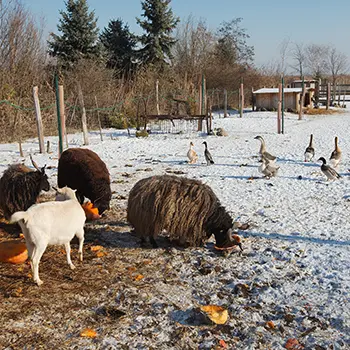
- Stiff muscles
- Lethargy
- Gray or pale gums
- Impaired coordination or stumbling
- Dilated and fixed pupils
- Low breathing and heart rate
- Collapse
- Coma (at its worst)
Related: Chicken Secrets Nobody Told You About
The parts of the body most likely to be affected by frostbite include:
- Hind limbs
- Hooves
- Scrotum
- Teats
- Tail
- Ears
The symptoms of frostbite include:
- Dead or blackened skin
- Skin ulcers or blisters
- Swelling
- Pain in the affected area
- Brittleness and coldness of affected area
- Discolored skin, bluish, gray, or pale
Check House Plants: Check your houseplants for scale infestation. Damage caused by scale will depend on the extent of the infestation. But in general, you should look out for the following:
- Leaf drop
- Brown pockmarks
- Yellowing leaves
- Stunted growth
February Homesteading Chores Zone 2
Climate zone 2 experiences some of the coldest winters in the United States. With below zero temperatures, it is very difficult to grow a garden in these parts of the country. Here are some chores you can do during February in zone 2.
Add to Poultry Diet: During the winter months, your hen’s dietary requirements will change. Not only will you need to add to their diet, but you will also need to increase the amount of food they eat.
Hens need to eat 1.5 times more than their normal amount of food during the winter months. Layered pellets will keep your hens healthy by providing them with essential nutrients. In addition, feed them cracked corn before bedtime as this will keep them warm during the night. Scrambled eggs are a delicious warm treat for your chickens; it’s also a rich source of protein that will help them with energy storage in the cold weather.
Prune Fruit Trees: The best time to prune fruit trees is before new growth begins during the late winter. Pay attention to your fruit trees as pruning must be done before the buds start opening.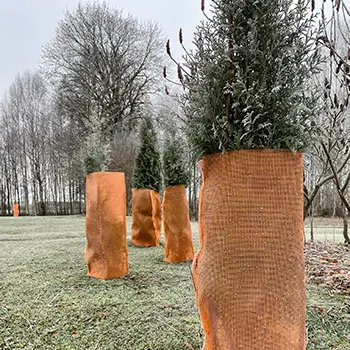 Cut 24 to 30 inches from the new stem and snip off any side shoots. Pruning the trees in this way will balance the root system and growth by causing the tree to grow low branches. February is a great time to get started.
Cut 24 to 30 inches from the new stem and snip off any side shoots. Pruning the trees in this way will balance the root system and growth by causing the tree to grow low branches. February is a great time to get started.
February Homesteading Chores Zone 3
Zone 3 winters are exceptionally cold reaching temperatures below sub-zero. Here are some chores you can do during February in zone 3.
Barn Ventilation: Due to the cold weather, your first instinct might be to shut the barn doors to keep your animals warm. But this isn’t a good idea because it restricts ventilation and causes the air to become moist leading to ammonia toxins, mold spores, and a host of other dangerous pathogens that can cause major health problems for your livestock. Here are a few simple tips that will help ventilate your barns:
- Keep the windows open
- Keep the aisle doors open
- Get the dust under control
- Keep the livestock outside
Finally, if you’re planning on building a new barn, speak to the designer about incorporating ventilation into the construction, as this will keep the air flowing during the summer and winter months.
Grow Indoor Plants: Gardening in zone 3 is complicated because of the average last frost date. Starting the growth process indoors is the best way for plants to reach maturity in zone 3. Start growing cold hardy seeds such as Brussels sprouts, broccoli, and kale six weeks before transplanting them out.
February Homesteading Chores Zone 4
Climate zone 4 has one of the shortest growing seasons out of the USDA zones. Nevertheless, seeds can be grown indoors to counter this. Here are some chores you can do during February in zone 4.
Check Fence Lines: Preventing predator attacks is one of the biggest challenges for homesteaders raising livestock. Predators are sneaky, and they will do things like dig a hole, cover it with leaves and come back at night when there’s no one about it. Check around the fence lines for holes, make sure the wires are still intact and if you’ve got electric fencing, check that it’s still working. Do a full fence inspection, replace the panels and posts if necessary, and tighten the wires.
Prevent Water Freezing: Livestock need a constant supply of water, during the winter months, water troughs have a tendency to freeze up. As all homesteaders have experienced, it’s no fun smashing through ice or carrying buckets of water over an icy barnyard. The good news is you can prevent your water from freezing over by investing in items such as heated water buckets, propane stock tank heaters, and automatic watering units.
Final Thought
The climate and frost-free dates will vary depending on the USDA Zone. For the most accurate information for your area, visit the Gardening to Know How website.
What is your climate zone and what chores do you usually do in February?
You may also like:
An Ingenious Method for Building a Well (Video)
Livestock Animals You Should Start Raising For The Upcoming Economic Crisis
Why You Should Raise Ducks Instead Of Chickens
11 Things That Won’t Lose Value In A Crisis

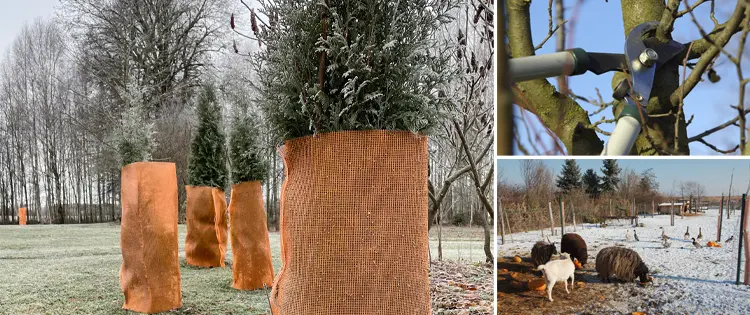
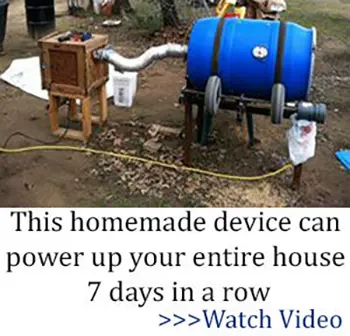








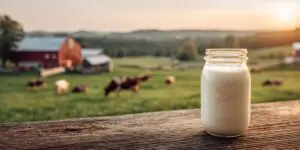
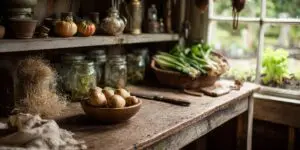
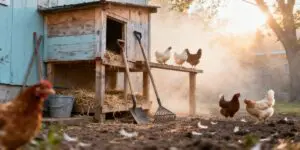
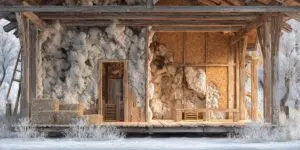
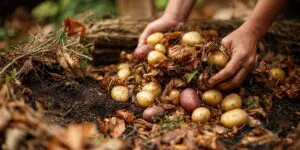
Who let’s their animals freeze should be taken to prison & what zones are you talking about? very confusing
Planting zones… Pretty important to know